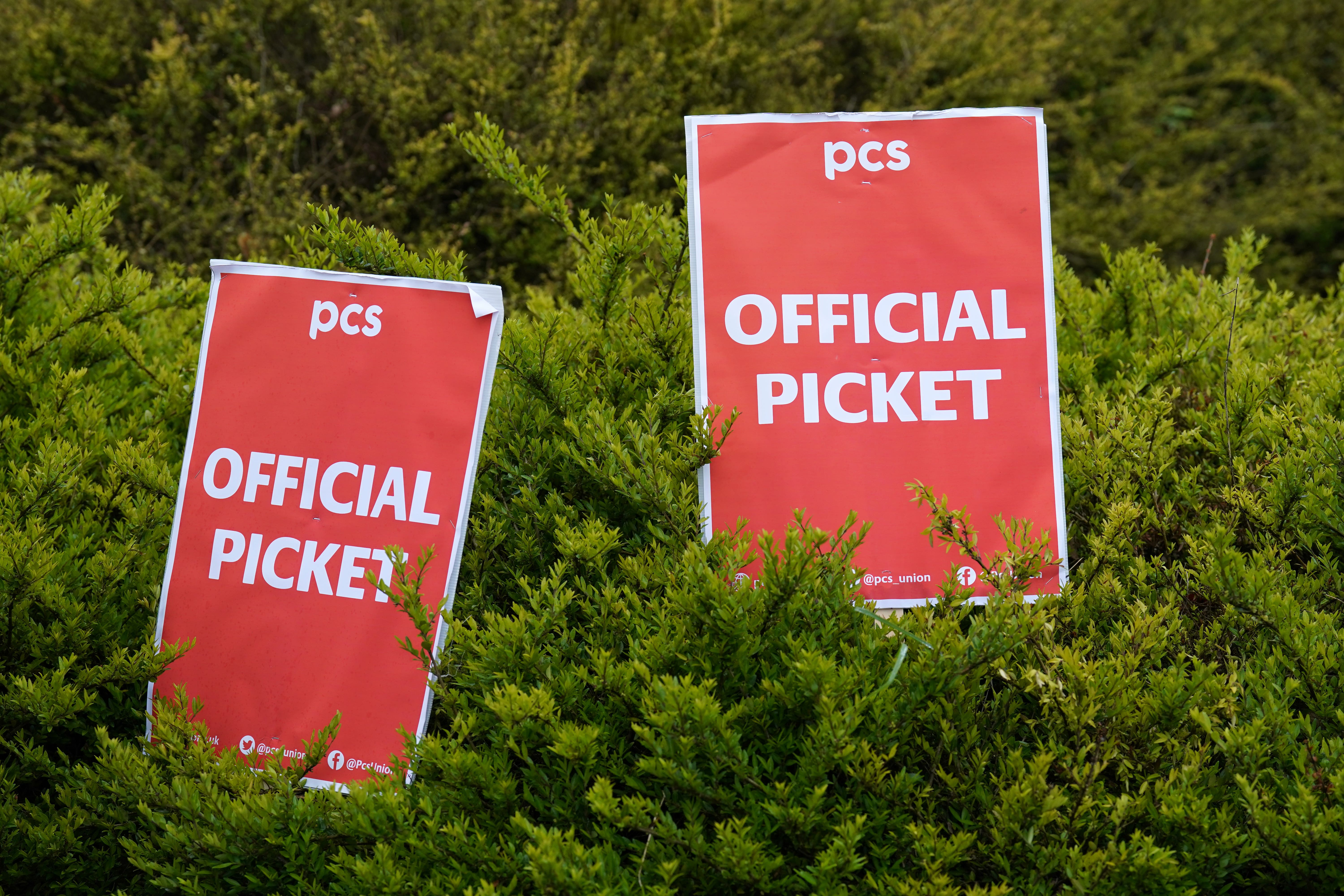Pensions Regulator staff to stage fresh strikes in dispute over pay
Public and Commercial Services union members will walk out for 12 days between February 28 and March 20.

Your support helps us to tell the story
From reproductive rights to climate change to Big Tech, The Independent is on the ground when the story is developing. Whether it's investigating the financials of Elon Musk's pro-Trump PAC or producing our latest documentary, 'The A Word', which shines a light on the American women fighting for reproductive rights, we know how important it is to parse out the facts from the messaging.
At such a critical moment in US history, we need reporters on the ground. Your donation allows us to keep sending journalists to speak to both sides of the story.
The Independent is trusted by Americans across the entire political spectrum. And unlike many other quality news outlets, we choose not to lock Americans out of our reporting and analysis with paywalls. We believe quality journalism should be available to everyone, paid for by those who can afford it.
Your support makes all the difference.Workers at The Pensions Regulator (TPR) are to stage a series of fresh strikes in a dispute over pay.
Around 400 members of the Public and Commercial Services union (PCS) will walk out for 12 days between February 28 and March 20.
The workers have already taken more than 10 weeks of action.
PCS general secretary Fran Heathcote said: “Our hard-working members are angry at being told TPR can’t afford to give them a pay rise to help them through the cost-of-living crisis but they can afford to pay £6 million to consultants, splash out almost £200,000 on fees and expenses for its chair and part-time board members, and spend more than £1 million on other expenses, including accommodation.
“It’s time for TPR to invest in its staff, not on jollies and outsourcing.”
A spokesman for The Pensions Regulator said: “We are disappointed by the announcement of further industrial action. What we pay staff is fair, and this year our lowest-paid workers received a pay rise of 6.25%.
“After months of meetings, we have now exhausted negotiations for last year’s pay and are now looking ahead to next year.”